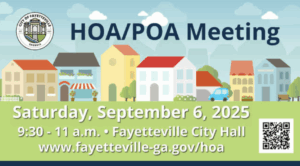County Commission poised to join in
One local government has made the decision to appeal the recent district voting decision ordered by a federal court judge, and another is expected to join that attempt.
The Fayette County Board of Education in executive session at a March 14 called meeting voted 3-1 to appeal the mid-February decision by U.S. District Judge Timothy Batten that set aside Fayette’s long-standing at-large voting format.
The other defendant in the NAACP Voting Rights Act lawsuit is the Fayette County Commission, which has made no public announcement about its plans to appeal.
However, an email exchange between Commission Chairman Steve Brown and one of the winning plaintiffs in the lawsuit suggests that the county plans further legal action.
The school board’s vote was 3-1, with Democrat Leonard Presberg opposed and Republicans Bob Todd, Marion Key and Barry Marchman in favor of the motion to appeal.
The Fayette County Commission, a co-defendant in the case, will also pursue an appeal of the district voting ruling. A recent comment from Commission Chairman Steve Brown indicates why such an appeal is likely to occur.
The remark was contained in an email from Brown to one of the lawsuit plaintiffs, Dan Lowry.
“Racial gerrymandering is unacceptable and we do not want our recent ruling to become the new precedent for discrimination based on race,” Brown wrote. “We do not believe that you should discriminate based on race for any reason, going in either direction.”
As for the school board’s decision to appeal, Presberg prior to the vote said, “I couldn’t disagree more strenuously. I think this is a waste of money.”
Presberg said the lawsuit was one that “we lost every step of the way.
“There are people in this county who feel like their vote is not counted and (with the federal ruling) they celebrated a long-fought victory to have their vote count,” Presberg said.
Speaking prior to the vote, Marchman said several candidates for the school board and Fayette County Commission during their campaigns said they would push back on the disenfranchisement of the voters if district voting was implemented.
“This is a promise kept, and I want to remind voters that their voice was heard,” Marchman said.
In an email exchange with plaintiff Lowry, Marchman wrote, “I firmly believe we are making the right decision in this case for our county and for our children. We do not want to turn our county into five fiefdoms that are constantly at odds with each other. We do not want to go back to the ‘separate but equal’ doctrine and we do not want to teach our children that people who God made are primarily defined by the pigment in their skin. This is an evil that is worth fighting and I believe that we have the support of the vast majority of this county.”
Key on Monday said her vote to appeal was based on two considerations.
“I disagree with the district boundary lines recently drawn by the federal judge,” Key said. “And I don’t think district voting will be good for the entire school system.”
Key noted that when the school system’s initial district voting map was approved by the school board on Jan. 9, 2012, that approval came on a 3-2 vote, with Key and Todd opposed.
“I felt that the true opinions of the board hadn’t been represented,” Todd said Monday, noting that members of the school board and county commission were elected to be equally responsible for all parts of the county. “With district voting the focus is now on what I have in my district and what I can negotiate with someone else for their district.”
Under district voting, Fayette residents will no longer be able to vote for all five posts on both the board of education and the county commission. Instead, voters will be restricted to casting ballots for just one post on each group: the one corresponding with the geographic district the voter lives in.
The new map and the majority-minority 5th District are the result of a voting rights lawsuit filed by the National Association for the Advancement of Colored People (NAACP) and several individual county residents. The suit claimed at-large voting prevented black residents from electing the candidate of their choice.
The lawsuit specifically noted that no black candidate had ever been elected to the school board or the county commission.
The new district map and district voting process ordered by the court is being used for this year’s school board and county commission elections.
— Additional reporting by John Munford











Leave a Comment
You must be logged in to post a comment.